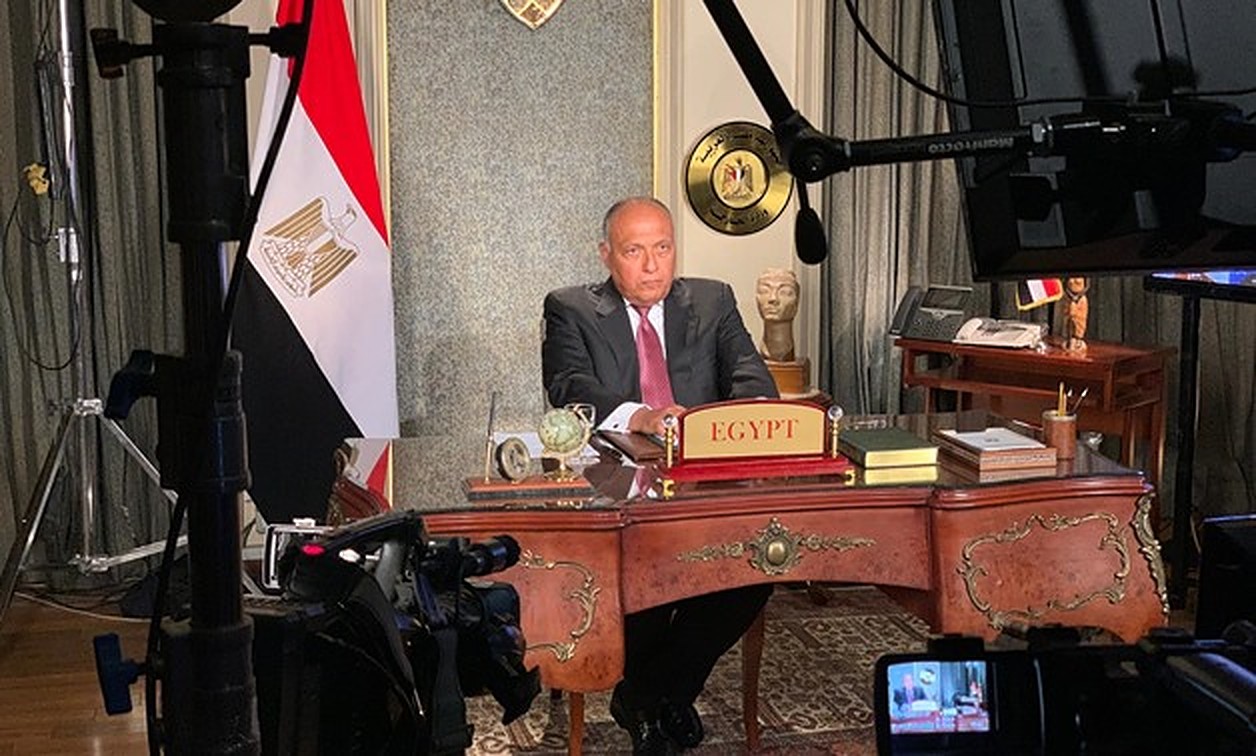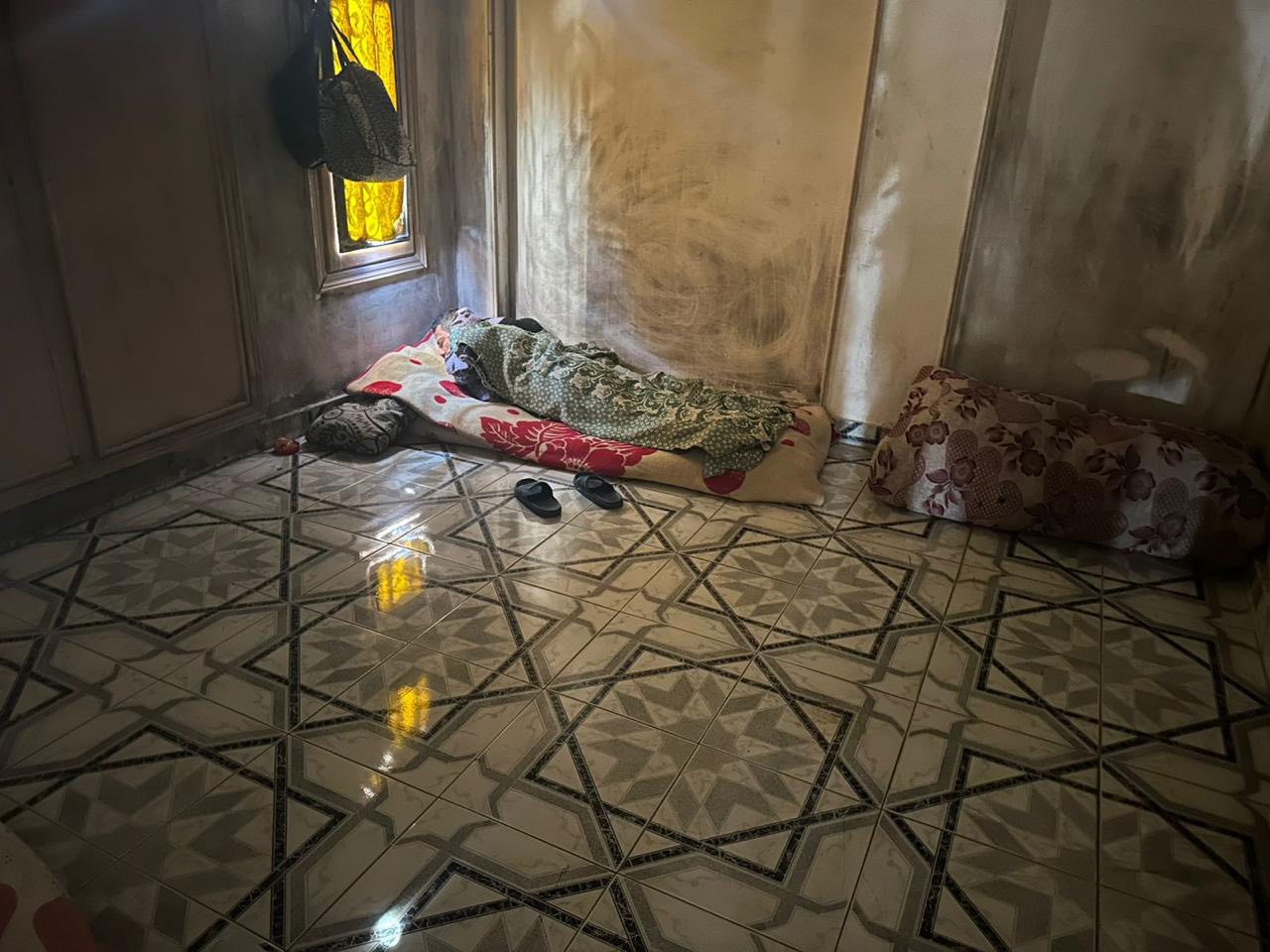“This is the Egypt we want,” wrote Hafez Al Mirazi on social media, professor at the American University in Cairo and Egyptian journalist, “an example of the best that Egypt can offer through its diplomats and representatives in sophistication, confidence, and fine language.”
Political speech can become a force that shapes circumstances and power structures beyond the words of the speaker. From diplomatic letters, to meetings, and now digital conferences, the power of communication still has authority for many leaders, allowing them to calculate their decisions and express leadership through the imaginative use of words.
On June 29, during a virtual meeting by United Nations Security Council on the Nile dam dispute, Egyptian Foreign Minister Sameh Shoukry stated Egypt’s position in a speech that brings to the centre the importance of cooperation and a spirit of community, in which all points can be negotiated and addressed.
During the times of a global pandemic, which has reminded leaders and citizens worldwide on the essentiality of cooperation, Shoukry began by addressing the world’s core challenge: looking beyond self-interests. “We are reminded that, beyond the multitude of cultures and creeds, and the diversity of nations and peoples, we are, ultimately, a single human family,” he says, “the welfare of which demands that we look beyond narrow self-interest and promote the bonds of solidarity within our global community.”
Egypt’s foreign minister spoke on the urgency of the matter and, through his words, expressed Egypt’s concerns through highlighting the threats that the nation could face. “Inhabiting no more than 7% of our territory along a slender strip of a green and fertile delta”, this ultimately “places Egypt well below the international threshold of water scarcity,” he noted. This way, the weight and seriousness of the issue is reflected, as Shoukry also adds that this issue “would expose Egypt to unthinkable hazards.”
Throughout the speech, Shoukry was able to maintain the heart of Egypt’s diplomatic position, which focused on exploring every possible avenue and form of communication to reach an agreement. “It is Egypt’s belief that an agreement on the GERD must be a legally binding instrument under international law,” he said, “that must also include clear definitions that establish the threshold of significant harm that must be prevented, in addition to a binding dispute resolution mechanism to ensure the effective implementation of this agreement.”
It called upon its partners in the United States of America and the World Bank to partake in negotiations, leading to an agreement that was accepted by Egypt in February of this year. On top of that, Egypt partook in negotiations that were held upon the initiative of Sudan as well as the Extraordinary African Union Bureau of the Assembly of Heads of State and Government meeting on June 26th, 2020.
Insistence to reach an agreement extends even further, as Shoukry called on upon the Security Council to “encourage the parties to negotiate in good faith to reach an agreement on the GERD, and to refrain from any unilateral measures until such an agreement is reached.”
Security is presented through the paradigm of ‘human security’, establishing a link between peace, development and human rights, and touching upon food security, water security, environmental security, and human health. In this case, Shoukry represents it as a case of saving human lives, in which he notes that many could be left at risk. “It will also expose millions to greater economic vulnerability, leading to increasing rates of crime and illegal migration. It would reduce water quality, disrupt the riparian ecosystem, damage biodiversity, and aggravate the dangers of climate change,” he said.
On the whole, the speech communicated Egypt’s need for cooperation to reach an agreement, noting that it “wholeheartedly support Ethiopia’s right to development,” and that it “summons the spirit of brotherhood and kinship.”
Opening the door for further communication, and presenting the opportunity for states to strike a balance between self-interests and global cooperation, Shoukry’s speech addresses the global community, including Egypt, to reassess its priorities, goals, and interests, and to put human lives – wherever they are in every corner of the world – at the core of any issue.
It concludes with the final statement: “Let us embrace the undeniable truth of our commonality and camaraderie. Let us grasp the opportunity that is before us to shape our fate, rewrite history, and chart a new course of peace and prosperity for our peoples.”







Comments (0)